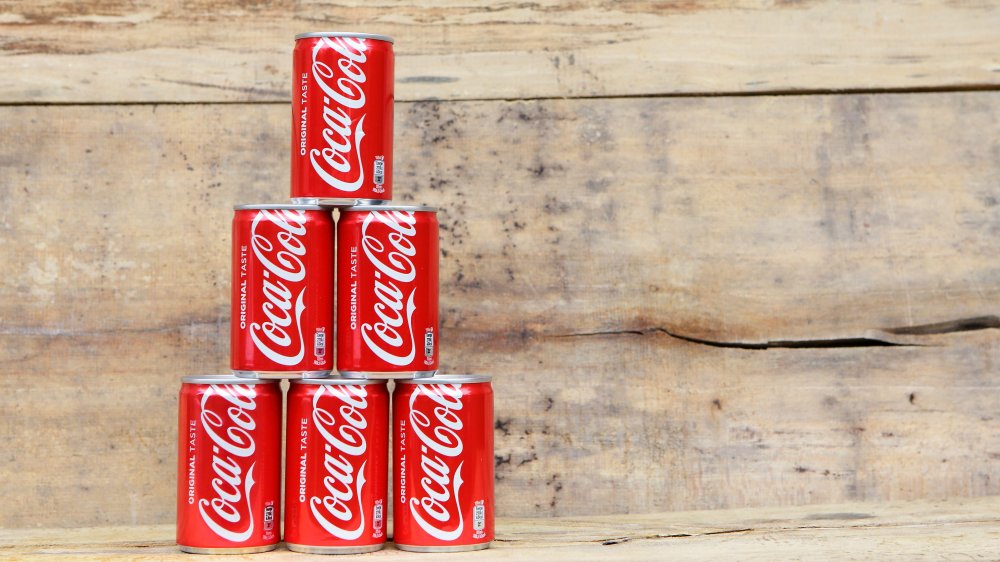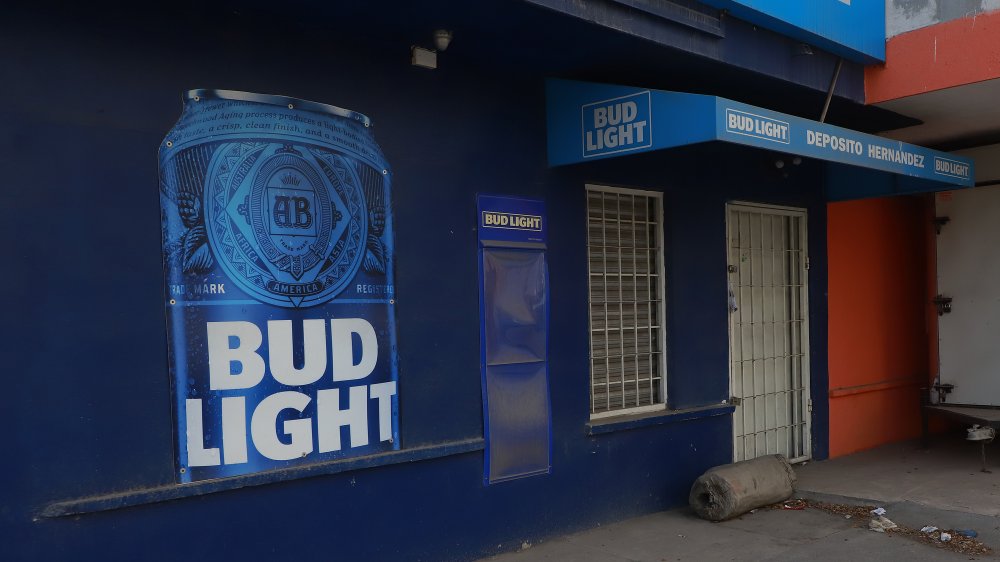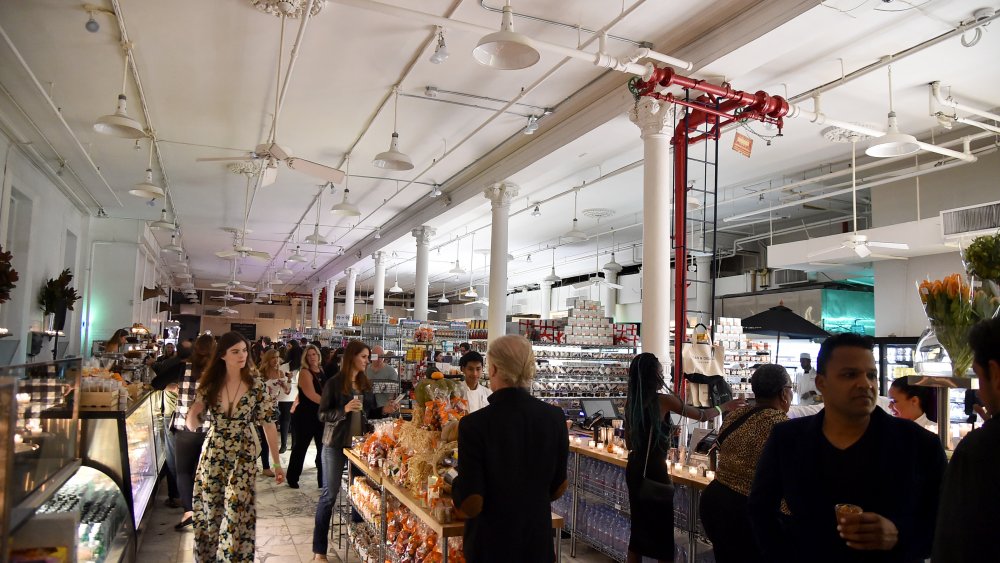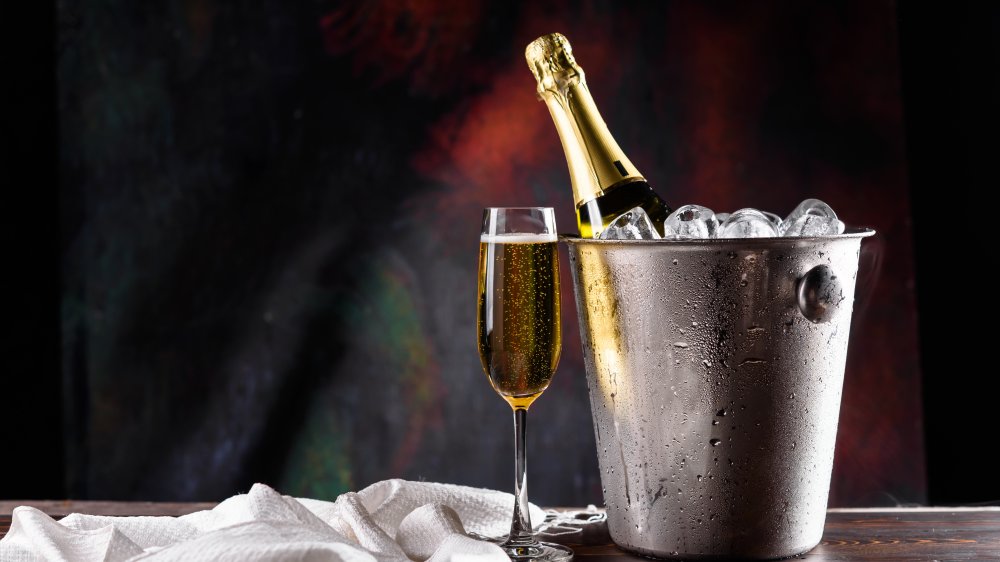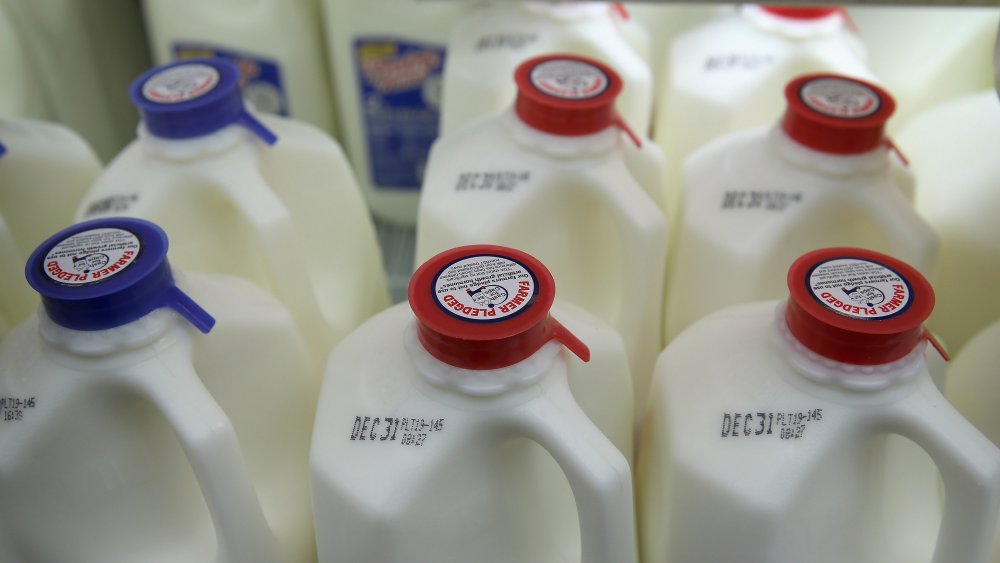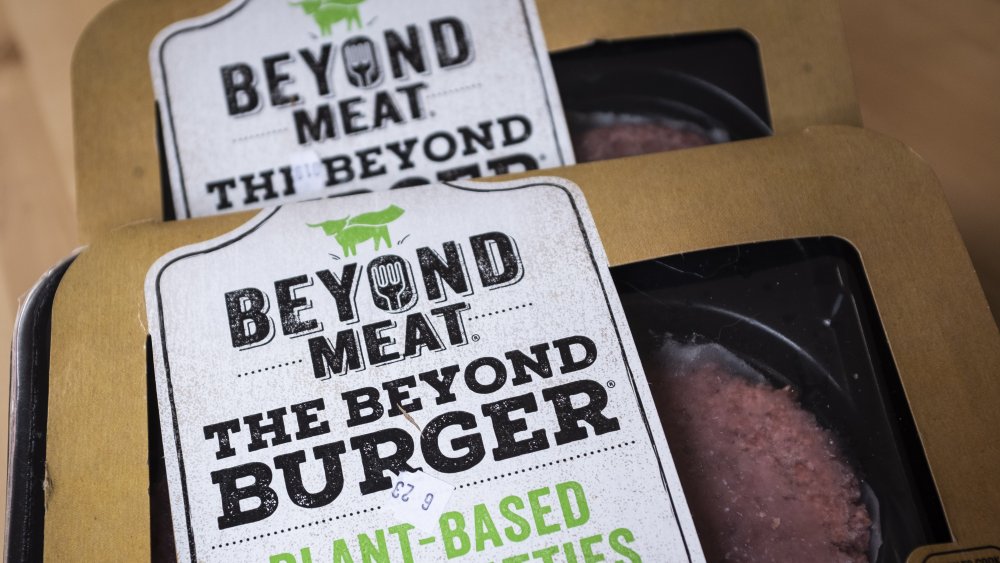Food Brands That Are Failing During The Pandemic
Grocery sales are up. Snack sales are up, ice cream sales are up, and beer sales are up. You could say that America is eating and drinking its feelings as the country enters the fifth month of the coronavirus pandemic in the United States. With the United States' GDP plunging a record 32.9 percent in the last quarter, food sales would seem to be one of the country's few economic bright spots.
Americans are currently spending more time at home, and eating most or all of their meals at home, reversing years of social trends. Americans officially crossed the threshold of spending more than 50 percent of their food budget on food eaten away from home in 2010, and that number has increased since, until it ran into the statistical outlier of a year that is 2020. But, with national unemployment rates greater than during the Great Recession, Americans don't exactly have a lot of discretionary income. And so, a global pandemic, a recession, and pre-existing trends in the grocery industry have combined to result in the economic upset of some very popular brands.
Coca-Cola
The most iconic, arguably most iconically American (sorry, Pepsi) soda brand's sales fell a whopping 33 percent in the second quarter of the year. The brand suffered from a devastating decline in out-of-home sales with closures of cafes, bars, and restaurants across the globe. The beverage giant claimed that the worst was over and that sales would improve as lockdowns continue to ease. This is somewhat born out by the numbers. Global unit case volume shrunk by 16 percent overall, but broken down by month, it plunged by 25 percent in April, the peak of the pandemic in most of the world, and only 10 percent in June, when lockdowns had eased in much of Europe and the United States. Coca-Cola just announced that it will launch a Topo Chico hard seltzer in 2021, a smart move considering that the spiked seltzer category's sales volume grew by 200 percent in 2019. Will hard seltzer be the way that Coca-Cola gets its groove back?
Anheiser-Busch
Anheiser-Busch, corporately known as AB InBev is the largest beer company in the world. It makes roughly one in four beers sold globally with a 28 percent global market share. And just like its corporate behemoth cousin Coca-Cola, AB InBev spent the first quarter of 2020 — and then some — suffering from a lack of people across the globe leaving their homes to drink.
The company reported a 32 percent drop in global sales volume in April, and while news in the months since has been less terrible for the company than expected, the alcohol sector is not having a great year, and AB InBev is too large and too global to insulate itself from the fluctuations from the market. AB InBev's sales in the US have been okay - Bud Light sales in the U.S. are up by 44 percent – but in South America, the lack of nightlife has cut the beer giant's sales by at least 50 percent. To sum things up, AB InBev is a global brewer with a global sales problem.
Dean & Deluca
Before Whole Foods, before Eataly, before Erewhon, there was Dean & Deluca, a place that probably seemed reasonably priced only to the many celebrities photographed leaving with a cold pressed juice or white paper grocery bag. Cheese merchant Giorgio Deluca and business manager Joel Dean opened their first store in Manhattan's artsy Soho neighborhood in 1976, and by 1988, they upgraded to a store on Broadway that was five times the size of their previous humble digs. The store's glossy look and its marked-up prices led some to call it a "food museum." During a time when Americans are watching their wallets, it's not terribly surprising that Dean & Deluca filed for Chapter 11 bankruptcy in Manhattan this past April.
The company hopes to be able to resume operations if it can get its finances in order, and listed liabilities of up to $500 million and assets of no more than $50 million, including its brand name. Dean & DeLuca has closed most of its locations – its last two remaining stores are located in Hawaii – and its only source of income has been the $1.5 million it gets in royalties from franchised stores. While Dean & Deluca has been on a downward trajectory for a while, the ruthless economy of the COVID-19 pandemic certainly helped push it over the edge.
LVMH Moët Hennessy
The alcohol industry is hurting from the closure of bars, clubs, and restaurants, but do you want to know who's really, really hurting? Champagne sales have been decimated by the coronavirus pandemic. You pop champagne to celebrate a milestone event or genuinely good news with the ones you love, but you're probably not going to splurge on the bubbly for a zoom happy hour. And it's safe to say that weddings, baby showers, and bottle service at the club are not pandemic-friendly activities. (Not all bubbly is suffering a COVID-related sales slump – Prosecco sales are up). What is especially unlikely to get poured out at a zoom happy hour? Fancy champagne. LVMH Moët Hennessy has seen its operating profit fall 68 percent in the first half of the year. The sharp drop in sales has lead to disputes between larger champagne makers like Moët & Chandon, a subsidiary of LVMH Moët Hennessy, who would like to make a sharp cut in production to cut costs, and vineyard owners, who worry that their financial solvency will literally die on the vine.
Borden Dairy
Large grocery chains are bottling their own milk, and it's causing chaos in the dairy industry. We're in a recession, and most shoppers will reach for a low-priced generic option when one is available, with milk being no exception. Kroger, Walmart, and Albertsons have all bought their own milk-bottling plants, which poses a real threat to the $40 billion U.S.dairy industry. Private equity firm KKR just bought Borden Dairy, one of the largest dairy corporations in the United States, after it filed for Chapter 11 protection in January. (Dean foods, the largest dairy company in the U.S., filed in November 2019). While it's fair to say that Borden Dairy was failing before the pandemic, grocery chains' recent infusion of cash and ability to slash prices on milk and use it as a loss leader, certainly has not helped. Meanwhile, the U.S. average all-milk price has been on a COVID-19-induced roller coaster, jumping from an 11 year low in May to a record high in July 2020.
Beyond Meat
Before March, 2020, things were going really well for Beyond Meat. The plant-based food industry has come a long way from crumbly soy patties, and in 2019, you could find a Beyond Meat-ball marina sub sandwich at Subway, a Beyond Burger at Carl's Jr., a breakfast sandwich with a Beyond Meat sausage patty at Dunkin' Donuts, a Beyond Burger at various restaurants in Disney World, and too many other restaurants to list. The world was their (plant-based) oyster! But, alas, the coronavirus pandemic hit and now Beyond Meat has to compete on grocery store shelves with, well, meat.
As consumers shifted from eating out at restaurants to eating at home, the opportunity to order a Beyond Burger and try something new disappeared. But, beyond that, remember that even as supermarkets cleared space on shelves for Beyond Meat and other plant-based alternatives during fears of a meat shortage that never really came, plant-based meat alternatives account for a mere 1.5 percent of total meat and meat-substitute sales. Beyond Meat took a huge hit when the world shifted from eating away from home to eating at home, and industry analysts didn't predict the best outcome for second-quarter sales. Surprisingly, when Q2 reports were released in August 2020, Beyond Meat's numbers were better than expected.

